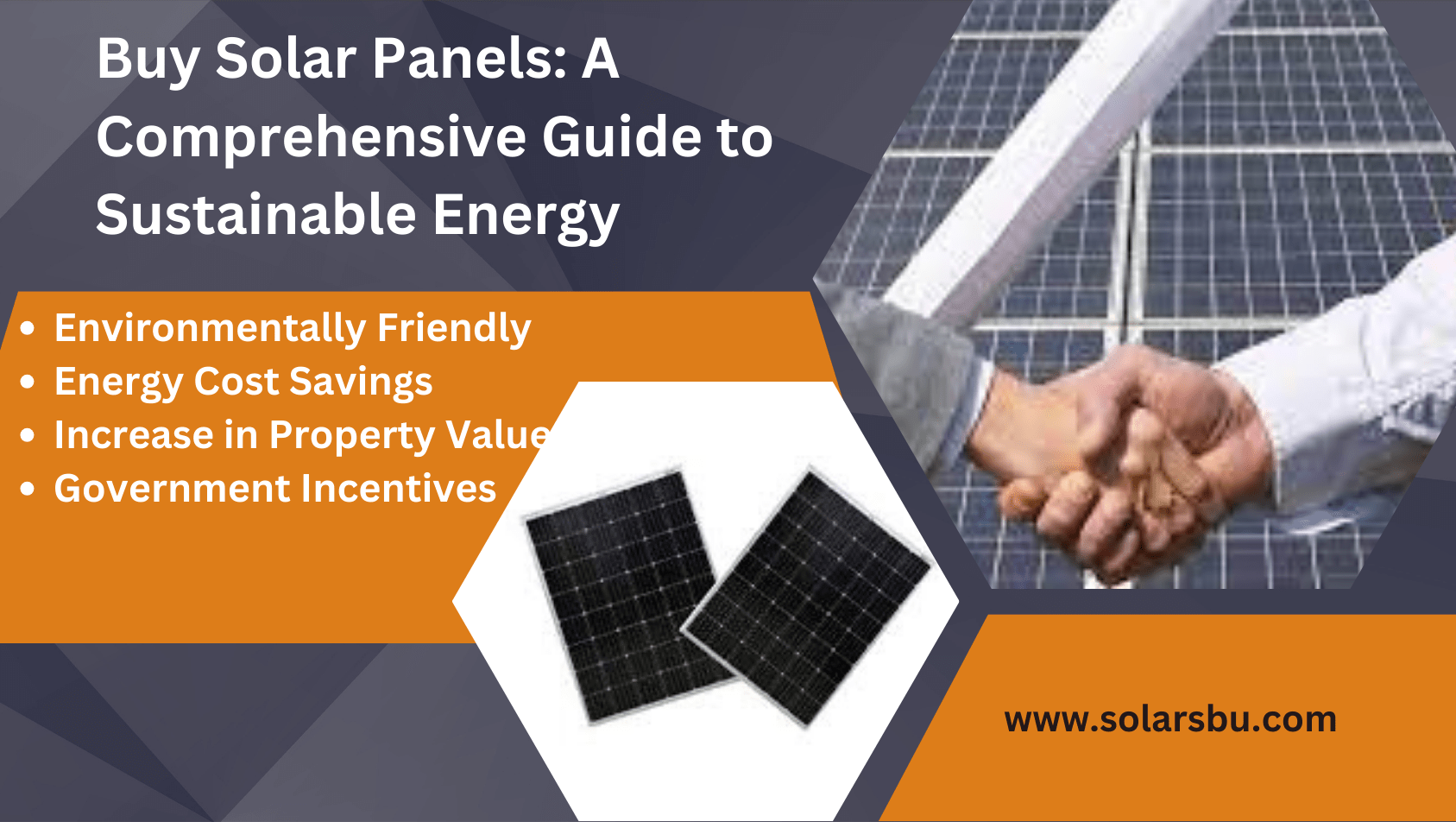Buy Solar Panels: A Comprehensive Guide to Sustainable Energy
In recent years, the global shift towards sustainability and eco-conscious living has gained tremendous momentum. One of the most significant steps an individual or business can take towards reducing their carbon footprint is investing in solar panels. The decision to buy solar panels not only contributes to a greener planet but also offers long-term financial benefits. In this comprehensive guide, we will delve deep into the world of solar panels, discussing their benefits, types, installation, and maintenance. By the end of this article, you’ll be armed with all the knowledge needed to make an informed decision about purchasing solar panels.
The Benefits of Going Solar
1. Environmentally Friendly
One of the primary reasons to buy solar panels is their eco-friendliness. Solar energy is a renewable resource that harnesses the power of the sun, producing electricity without emitting harmful greenhouse gases. By choosing solar panels, you significantly reduce your carbon footprint and contribute to a healthier environment.
2. Energy Cost Savings
Investing in solar panels is an intelligent financial decision. While the initial cost of installation may seem daunting, the long-term savings on energy bills are substantial. Solar panels generate electricity for free, reducing or even eliminating your monthly utility bills.
3. Increase in Property Value
If you’re a homeowner, installing solar panels can significantly increase the value of your property. Buyers are increasingly looking for eco-friendly features, and solar panels are a valuable selling point that can make your home more appealing in the real estate market.
4. Government Incentives
Many governments offer incentives, tax credits, and rebates to encourage the adoption of solar energy. These financial benefits can significantly offset the initial investment, making it even more attractive to buy solar panels.
Types of Solar Panels
When considering a solar panel purchase, it’s essential to understand the different types available in the market. Here, we outline the most common types:
1. Monocrystalline Solar Panels
Monocrystalline solar panels are known for their high efficiency and sleek appearance. They are made from a single crystal structure, which allows them to convert sunlight into electricity more effectively. While they tend to be more expensive, their efficiency and durability make them a popular choice.
2. Polycrystalline Solar Panels
Polycrystalline solar panels are more affordable than monocrystalline panels but are slightly less efficient. They are made from multiple crystal structures and are a practical choice for those looking for a budget-friendly option.
3. Thin-Film Solar Panels
Thin-film solar panels are the lightest and most flexible option. They are often used in applications where traditional panels may not be suitable, such as curved surfaces. However, they are less efficient and may require more significant installation space.
The Solar Panel Installation Process
Once you decide to buy solar panels, the installation process is a crucial step. Here’s a brief overview of what to expect:
1. Site Assessment
A professional solar installer will assess your property to determine the best location for solar panel installation. Factors like sunlight exposure, roof condition, and shading are taken into account to optimize energy production.
2. Panel Installation
The solar panels are securely mounted on your roof or in a ground-mounted system. The installer ensures that they are positioned to capture the maximum amount of sunlight.
3. Inverter Installation
An inverter is installed to convert the direct current (DC) generated by the solar panels into alternating current (AC) that can be used to power your home or business.
4. Connection to the Grid
In some cases, excess energy generated by your solar panels can be fed back into the grid, potentially earning you credits or reducing your energy bill further.
Solar Panel Maintenance
To ensure the longevity and efficiency of your solar panels, regular maintenance is essential. Here are some maintenance tips:
1. Keep Panels Clean
Dust, dirt, and debris can accumulate on the panels, reducing their efficiency. Regularly clean them with water and a soft brush to maintain optimal performance.
2. Inspect for Damage
Periodically inspect your solar panels for any signs of damage or wear. If you notice cracks, loose connections, or other issues, contact a professional for repairs.
3. Monitor Performance
Keep an eye on your solar panel’s performance through monitoring systems. Any significant drops in energy production may indicate a problem that needs attention.
In conclusion, the decision to buy solar panels is a significant step towards a sustainable and cost-effective energy future. With benefits ranging from environmental friendliness to long-term savings, solar panels offer a compelling case for investment. Understanding the types, installation process, and maintenance requirements is crucial in making an informed decision. So, if you’re ready to embrace the power of the sun, take the first step towards a greener and brighter future by investing in solar panels.
you need to explore more then visit here

